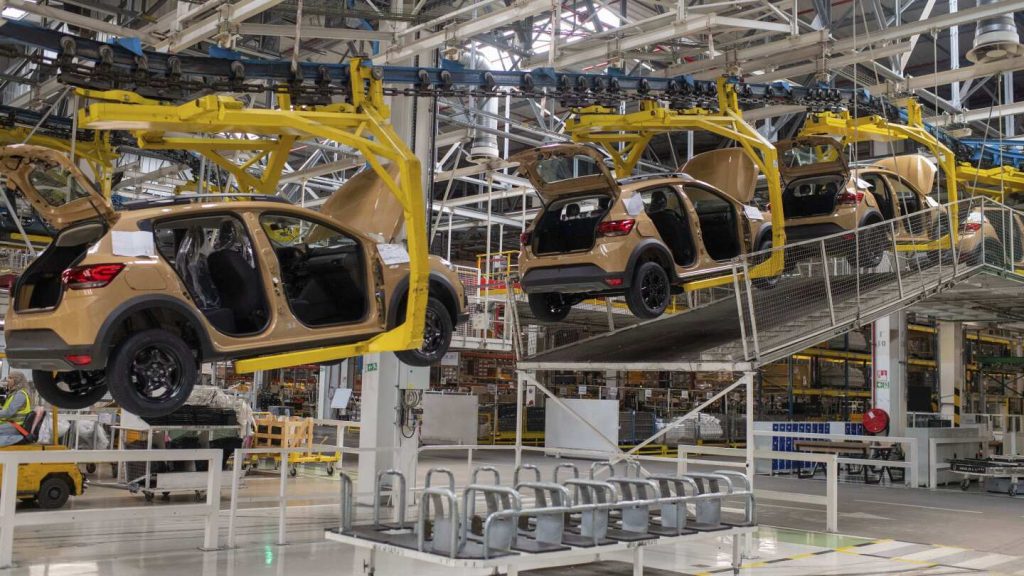Morocco’s automotive industry has seen significant growth in recent years, becoming Africa’s largest in less than two decades. With the capacity to produce 700,000 vehicles a year, the country has become a major player in the global automotive market, supplying more cars to Europe than countries like China, India, or Japan. The government’s investment in infrastructure, such as a freight railway line that transports cars to European dealerships, has been a key factor in this growth. However, as the world transitions towards electric vehicles (EVs) and automation, the industry faces challenges in staying competitive.
The automotive industry in Morocco now accounts for 22% of the country’s GDP and $14 billion in exports, with over 250 companies operating in the sector. French automaker Renault is one of the largest players in the industry, producing models like the Dacia Sandero in Morocco. The government’s policies, which allow for fast approval and construction of new factories, have attracted foreign investment and made Morocco a desirable location for outsourcing production. Subsidies and incentives have also played a role in attracting manufacturers to set up factories in rural areas like Tangiers.
Morocco’s success in building up its automotive industry has created jobs and helped transform its economy, which has traditionally been agrarian. While the domestic market for new cars is small, the country’s focus on exports has propelled its automotive sector forward. The government has invested in infrastructure and training programs to ensure that the industry has the skilled workforce needed to support its growth. As the world moves towards EV production, Morocco is positioning itself as a potential hub for electric vehicle supply chains.
The country’s political stability and proximity to Europe have made it an attractive destination for automakers looking to expand their operations. Morocco’s ability to increase its “integration rate” by sourcing more parts locally has also been a competitive advantage. However, the rise of protectionism in Western countries, as seen with incentives for consumers to buy electric vehicles manufactured domestically, poses a challenge for Morocco’s export-driven automotive industry. The government is seeking to navigate these changes and maintain its position in the global market while adapting to the shifting landscape of automotive production.
Despite the uncertainties surrounding the future of the automotive industry, Morocco remains optimistic about its prospects. The country’s investment in infrastructure, training, and partnerships with industry players like Renault have put it in a good position to attract further investment in EV production. As the world transitions to electric vehicles, Morocco aims to continue growing its automotive sector by leveraging its skilled workforce and competitive advantages. While challenges lie ahead, the country is determined to stay competitive in the evolving global automotive market.


